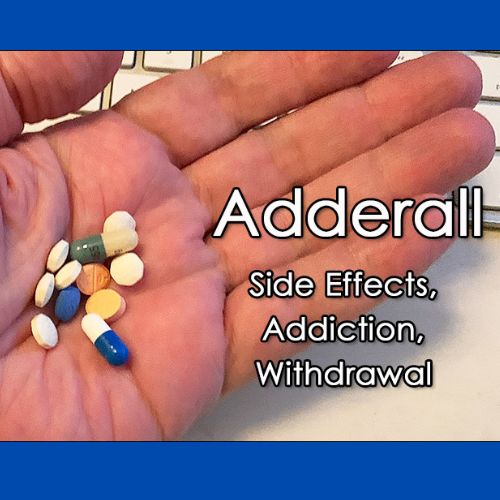Dangers of Adderall Addiction

Adderall (amphetamine, dextroamphetamine) addiction poses several significant dangers. The drug has a high potential for abuse and misuse, which can lead to the development of a substance use disorder, including addiction.
Psychological and Behavioral Risks: Addiction to Adderall can result in severe psychological dependence, characterized by a strong desire to take the drug, difficulties in controlling its use, and continued use despite harmful consequences. Chronic use can lead to anxiety, psychosis, hostility, aggression, and suicidal or homicidal ideation.
Physical Health Risks: Misuse and abuse of Adderall can cause increased heart rate, respiratory rate, and blood pressure, as well as sweating, dilated pupils, hyperactivity, restlessness, insomnia, decreased appetite, loss of coordination, tremors, flushed skin, vomiting, and abdominal pain. Severe cases of misuse, especially with higher doses or unapproved methods of administration (e.g., snorting or injection), can result in overdose and death.
Dependence and Withdrawal: Physical dependence can develop with prolonged use, leading to withdrawal symptoms such as extreme fatigue, mental depression, and changes in sleep patterns upon abrupt cessation.
Social and Functional Impairment: Addiction can lead to severe social disability, including impaired functioning in daily activities and obligations, and can significantly impact personal and professional relationships.
Given these risks, it is crucial to assess each patient’s risk for abuse, misuse, and addiction before prescribing Adderall and to educate patients and their families about these risks.
Long-term abuse of Adderall (amphetamine, dextroamphetamine) can lead to several severe health effects. Chronic use can result in neuropsychiatric issues such as anxiety, irritability, insomnia, hyperactivity, and significant personality changes. The most severe manifestation is amphetamine-induced psychosis, which can be clinically indistinguishable from schizophrenia.
Cardiovascular complications are also a concern, including increased heart rate, hypertension, and a heightened risk of myocardial infarction and cardiomyopathy. The American Heart Association has noted that stimulant misuse can lead to cardiomyopathy and other serious cardiac events.
Neurological effects include long-term disruptions in neurotransmitter systems, particularly involving dopamine and serotonin, which can lead to neurocognitive impairments and increased risk of conditions like Parkinson’s disease and seizures. Chronic amphetamine use has been shown to cause persistent changes in brain chemistry, including alterations in glutamatergic and dopaminergic neurotransmission, which may contribute to the risk of relapse and craving.
Physical health risks include severe dermatoses, weight loss, and malnutrition due to decreased appetite. Additionally, there is evidence of liver and kidney toxicity, especially when amphetamines are co-abused with alcohol.[7]
Overall, the long-term health effects of Adderall abuse are profound and multifaceted, affecting psychological, cardiovascular, neurological, and physical health domains.
Discover more from Recover Once! Be Free For Life!
Subscribe to get the latest posts sent to your email.



Leave a Comment